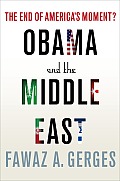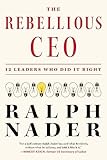Fawaz Gerges is a Professor and Director of the Middle East Center at the London School of Economics. Nominally a Christian commentator on the Arab world, more importantly he is widely sought and respected for his balanced view and assessment of the American Middle Eastern dominant presence and the view thereof of hundreds of millions of people from Morocco to Tehran. Professor Gerges several months ago released a book, Obama and the Middle East, of which the sub-title, The End of America’s Moment? is posed as a question, but in fact makes the statement: the sunset is near for the overarching American influence, suasion and direct physical engagement in the Arab near-continent, a presence that has prevailed since the Eisenhower Administration.
Barack Obama, it’s suggested, had a marvelous opportunity in 2009 – having won the world’s attention and expectations – particularly that of the Arab world – that he would change the course of American involvement,, influence and dominion in the Middle East. In the event, what has transpired has fatally fallen short of what had been dreamed about.
 The Arab Spring seriously stood on its head the status quo in the Middle East and presented a huge challenge for the United States. Fawaz Gerges, one of the world’s outstanding scholars devoted to the Middle East and the Arab world, paints a broad canvas of American foreign policy within the region. In the process, he retraces the steps, the socio-political developments dating back to post-World War II, in order to explain the residual legacy, the issues that have been inherited by the Obama Administration.
The Arab Spring seriously stood on its head the status quo in the Middle East and presented a huge challenge for the United States. Fawaz Gerges, one of the world’s outstanding scholars devoted to the Middle East and the Arab world, paints a broad canvas of American foreign policy within the region. In the process, he retraces the steps, the socio-political developments dating back to post-World War II, in order to explain the residual legacy, the issues that have been inherited by the Obama Administration.
In succinct detail, Professor Gerges examines Obama’s responses to those challenges, from his negotiations with Israel and Palestine to his troop reductions in Afghanistan and the withdrawal from Iraq. In the process of evaluating the President’s engagement with the Arab Spring, his decisive mission in the alleged death of Osama bin Laden, the Libyan intervention, the Iran standoff and other matters of policy, Professor Gerges outlines the basic changes necessary if a realistic and forward-looking American policy in the region is to prevail.
The bottom line is not surprising, given the sum total of American presence in the region. Gerges concludes emphatically that “The American Moment” in the Middle East is nearing not just an inflection point but an endpoint. The cynical realism that has held sway since World War II – and which, under the Obama tenure, has not suffered the sea-change over which the world has been holding its breath – and has simply not been significantly altered or amended. That stark fact is the source of a renewed wave of current bitterness and mistrust that pervades the Arab world. The time has come to remake American foreign policy or face dire consequences.
Gerges’ deft handling of a widely diverse scenario, and his analysis and forecast concerning Islam and jihad are rooted in a unique combination: the assimilated experience, the osmosis of a young man born and raised in the Arab culture, and a distinguished scholar now occupying a sinecure within hailing distance of, although insulated from, the Washington mindset and American academe. From such a vantage point, the Arab world is seen to be striving to change, to wrench away from autocratic rulers of whatever aspect, while driven by the animus of long overdue human rights.
Writes a reviewer in Kirkus:
Gerges lays out the problems from multiple viewpoints and establishes the points of greatest need. How Obama addresses the challenge to America’s hegemony and whether he can stand up to political pressure from home will determine if this is truly the end of America’s moment in the Middle East. (Gerges) thoroughly scrutinizes the struggles of all the nations of the Middle East and doesn’t hesitate to distribute blame where it’s warranted.
American involvement in the Middle East, it’s long history and its wavering misjudgments, are faintly reminiscent of the westward colonialism and religious omnipresence in which the American Hemisphere has been marinated since the 15th Century. The ancient Doctrine of Discovery is startlingly replicated in the American chauvinism within the Middle East. And why not? While the European imposition of the DoD need not have formed the basis of American domestic indigenous law following the Philadelphia Convention of 1787, this former great opportunity was brushed aside by the affluent white framers of the Constitution, and the Doctrine – without any basis in our founding document – has served as the basis for the law of the land ever since.
This compelling metaphor, between America then and the Middle East now, is nudged in the recent statement of The Most Rev. Katharine Jefferts Schori, Presiding Bishop and Primate of The Episcopal Church, in a fatuous Pastoral Letter on the Doctrine of Discovery and Indigenous Peoples. Roughly comparable, although the subject matter is separated by 500 years or so, to the point of Professor Gerges’ book. Obama’s shortfall since 2009 echoed that of the conveners in Philadelphia in 1787.
This Archperson is not only Reverend, not merely More Reverend but is in fact Most Reverend, suggesting that she could have done better than this:
We seek to address the need for healing in all parts of society, and we stand in solidarity with indigenous peoples globally to acknowledge and address the legacy of colonial occupation and policies of domination.
It might have been an address by Hillary Clinton to the Bengazi Chamber of Commerce.
Like wow. But before we get into what she said, let me rid myself of a lingering prejudice. Two, actually. First, I should admit that I’m pretty old-fashioned and with a girl-type Archbishop I confess to the sinking feeling that I’m not getting my money’s worth. I mean, if male archbishops get to wear those gold dresses (or is that just Popes?), shouldn’t women archbishops come up with pant suits, like Hilary Clinton? (Funny the way that name keeps cropping up in any discussion of foreign policy and/or female Archbishopry.)
And then there’s the fact that the Anglican Church, which is the Church of England, but in America it hasn’t been de rigeur to use the word “English” since 1776, except to describe the warp you put on a cue ball in the game of 9-ball. As a result, they call themselves Episcopalians. La meme chose.
They owe the origin of their church to a horny 17th Century English monarch who started his own church because the Pope wouldn’t allow him a series of annulments enabling as many consecutive royal wives as Mitt Romney’s grandfather, albeit concurrently. You can see how Episcopalians are just loaded with proud traditions, church-wise.
So now, Presiding Bishop Jefferts Schori joined other religious voices in repudiating the Doctrine of Discovery at the 11th session of the United Nations Permanent Forum on Indigenous Issues (UNPFII). (It’s Permanent, as most UN Forums go, because they keep talking but never actually get anything done.) The theme for the UNPFII meeting is “The Doctrine of Discovery: its enduring impact on indigenous peoples and the right to redress for past conquests (articles 28 and 37 of the United Nations Declaration on the Rights of Indigenous Peoples).”
In 2009, the year of Obama’s Inauguration, the General Convention repudiated the Doctrine of Discovery.
“Through the millennia,” gushes the Archbishopess, “ many of their offspring (by”their” I guess she means us churchy white guys) have continued to misunderstand dominion, or to willfully twist the divine intent of dominion toward the conceit of domination.”
I get it – in other words, there’s nothing wrong with good old-fashioned dominion (dominie rhymes with nomine, as in nomine patris et filii et spiritus sancti), but don’t let me catch you dominating.
How true, how true, Archlady.
Through the ages, human beings have too often insisted that what exists has been made for their individual use, and that force may be used against anyone who seems to compete for a particular created resource. (Land, oil, natural gas, gold, etc.) The result has been enormous destruction, death, despair, and downright evil – what is more commonly called ‘sin.’
Thank God for the churchy discovery of “sin,” which obviates the necessity of using the word “crime.” But this Archperson doesn’t pull any punches, except that she leaves out the bad stuff like rape, sodomy, medical experimentation and genocide. No point in getting the people in the pews overly upset.
The blessings of creation are meant to be stewarded, in the way of husbanding and housekeeping, for the true meaning of dominion is tied to the constellation of meanings around house and household. There have been strands of the biblical tradition which have kept this sacred understanding alive, but the unholy quest for domination has sought to quench it…
Dominion is peachy keen, but not domination. No need to beat it to death. Can you see the verisimilitude of the Episcopal Church (pale imitation of the big brother in Rome) and the Obama dilemma? Dominion is okay, domination, no. The Archperson’s solution is a sort of righteous acceptance, something like substituting grape juice for the wine of the communion. One will do as well as the other as a substitute for the divine transfusion.
I know with certainty that Professor Gerges speaks the truth. He has the weight, the inertia of human history on his side. But in that other realm, whether to accept the dogma of the virgin Mother of God, or the Muslim predilection for the stoning of a rape victim in the town square as a harlot, I’m hopelessly conflicted.
It’s to be hoped that Obama can decipher and understand all this better than the rest of us.
But I doubt it.










